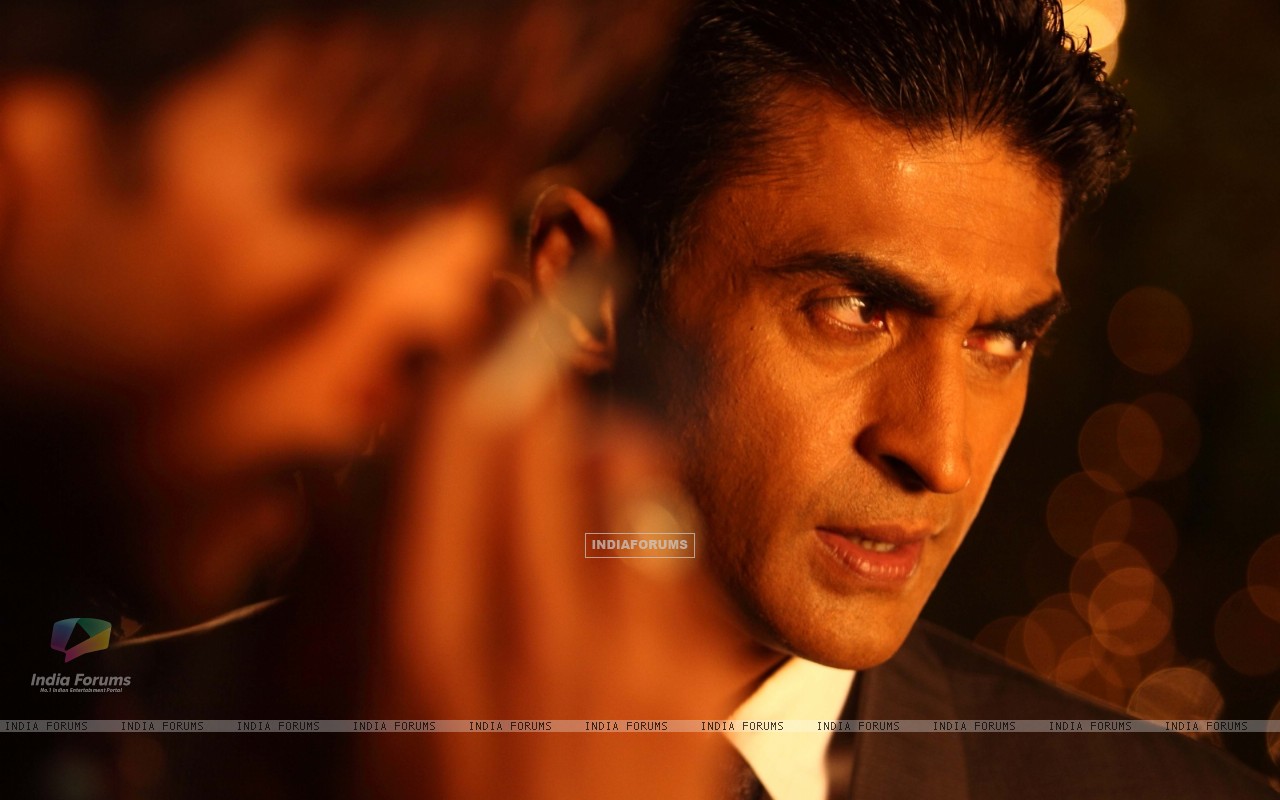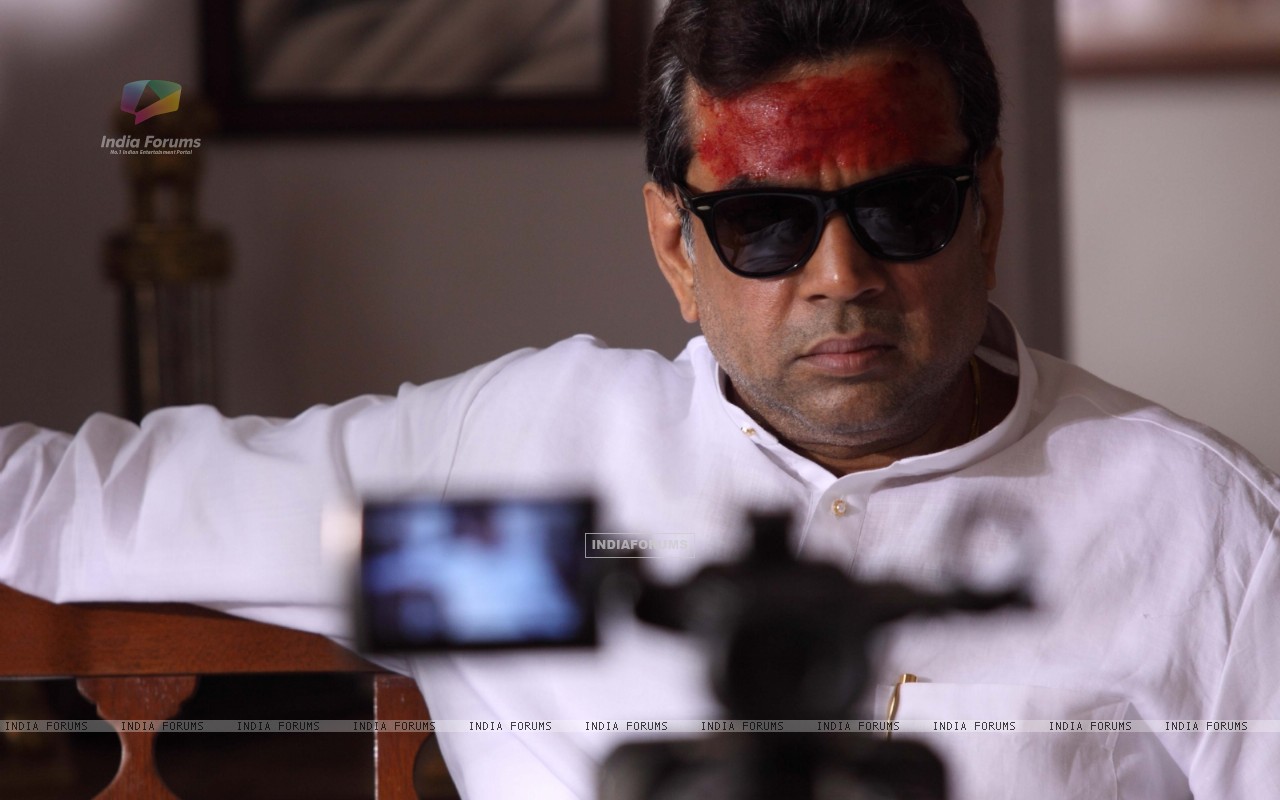So, as you may or may not know, I am a journalist. I am primarily a print editor with a background working for business newspapers, but I have done reporting. Being on the inside of the news business, I’m always on the lookout for good journalism movies, which are hard to find. Hollywood has a bit of an obsession with flippantly making characters “journalists” without understanding journalism. Making someone a journalist seems to be an easy way of making him or her either a crusader or a sleazebag, and the stereotype of the entertainment reporter chasing a serious journalism career is EVERYWHERE. I’ve only seen maybe three actually good journalism movies: State of Play (American and British versions), His Girl Friday and All The President’s Men (Woodward and Bernstein, though I’d rec their book over the movie).
Anyway, what this is all leading to is to point out that I’m also on a quest to find good Bollywood journalism movies, especially as I try to expand my understanding of how the Indian media system (one of the world’s largest) works. I pointed out last month in my Delhi Belly post how that film followed Hollywood’s journalist stereotypes.
And the quest for something better than that led me to Rann.
Synopsis:
Respected journalist Vijay Mallik (Amitabh Bachchan) is head of the flagging news channel India 24/7 with his son Jai (Sudeep). The channel is beset by slumping ratings (TRP), cashflow problems and harsh competition from rival channel Headlines 24, headed by Mallik’s former protégé Amrish Kakkar (Mohnish Behl). In order to save India 24/7, Jai secretly makes a deal through his industrialist brother-in-law Naveen (Rajat Kapoor) with corrupt politician Mohan Pandey (Paresh Rawal) to frame the prime minister for a terrorist attack and get Pandey elected PM. But how far can they take the charade once one of India 24/7’s idealistic young investigative journalists, Purab Shastri (Ritesh Deshmukh), begins to catch on and investigate?
Respected journalist Vijay Mallik (Amitabh Bachchan) is head of the flagging news channel India 24/7 with his son Jai (Sudeep). The channel is beset by slumping ratings (TRP), cashflow problems and harsh competition from rival channel Headlines 24, headed by Mallik’s former protégé Amrish Kakkar (Mohnish Behl). In order to save India 24/7, Jai secretly makes a deal through his industrialist brother-in-law Naveen (Rajat Kapoor) with corrupt politician Mohan Pandey (Paresh Rawal) to frame the prime minister for a terrorist attack and get Pandey elected PM. But how far can they take the charade once one of India 24/7’s idealistic young investigative journalists, Purab Shastri (Ritesh Deshmukh), begins to catch on and investigate?
For the most part, ignoring some minor problems I had with the film that I’ll address, Rann is a great journalism film. It was definitely a good look at one of the fundamental paradoxes journalism operates on: The media are a public service to provide knowledge to the people, but the media are still businesses that must get their funding somehow. American journalism perhaps feels the crunch of this much more than Indian journalism does, considering newspapers are lagging in the U.S. while they’re still on the rise in India. But here, even solid, trusted newsman Mallik faces the terrible reality that without ratings (in print, circulation/sales), a news organization can’t operate, even with high-quality journalism.
In the film, Amitabh Bachchan—who I’ve never not loved in a role—plays basically a hybrid of Walter Cronkite and Rupert Murdoch. He’s Cronkite because he’s the most trusted newsman in India, but he’s also head of a news organization (Murdoch-esque, on a much smaller scale). I think the basic idea that you can glean from this is that Mallik is a highly ethical, upstanding journalist, but he doesn’t really know how to run a profitable news business (aka he’s in a Murdoch position but without the Murdoch savvy). That’s why his channel is falling prey to schemes by Kakkar, who’s less principled (the stereotypical sleazebag journalist).
 |
| Even as an anchorman, Big B is kicking @$$ and taking names. |
And so, it seems that discouraged Mallik leaves most of his business decisions to his son Jai, who doesn’t seem to have ever been a journalist in any way. He’s simply the inheritor of the empire, with somewhat of a business mind. We’re basically given the impression once Purab raises questions based on journalistic principles in a board meeting that Jai cares more about keeping the organization afloat than journalistic principles. This, perhaps, is a big part of the reason that Jai is the one who falls into Pandey's trap; whatever sense of principles Jai has (I'm not sure we ever see any) are not grounded in high journalism ethics.
While on the subject, Jai was terrible. I hated the character anyway because he’s basically an unethical slimeball and a stupid one (albeit an understandably pressured one), but the casting on this one was also terrible! With Sudeep’s performance, I didn’t understand or feel Jai’s motivation at all. You could only understand his desperation in the abstract, not from his character. He needed to get some real motivation, and then go take a shower and brush his hair because for the head of a media company, he always seemed hygienically GROSS.
 |
| You know when you have those, "He can't be his son" moments in film or TV? This is one of them. And sir, please brush your hair! |
Honestly, I was happy when he (predictably) commits suicide at the end of the film by jumping off of a balcony. (Although it was kind of horrifyingly surprising that he locked his new wife in a room where she was forced to watch as he jumped.)
But at the same time, it seemed like a harsh punishment for a character who was the least guilty of all of those complicit in the scandal. Jai was sort of talked and pressured into helping frame the prime minister; Pandey, Kakkar and Naveen are all willing participants and instigating masterminds because of greed. (Also, random side note, but India 24/7's CEO, played by Suchitra Krishnamoorthi, sells inside information to Headlines 24, but she's never found out or punished, which is really annoying.)
 |
| Guilty as sin sleazebag journalist alert. |
In general, I’m a fan of a well-woven conspiracy story (the truth is out there, Mr. Mulder!), and this one was a well-woven conspiracy except that it could have explained Naveen’s role a little better a little earlier on. I just enjoy the layers of plot (and the twists that reveal those layers) involved in weaving a valid conspiracy.
Surprisingly, I found Paresh Rawal to be a great puppetmaster deviously pulling the strings behind the whole thing. I think this was the first time I’ve ever seen Paresh Rawal NOT be a film’s comic relief, the butt of everyone’s jokes. I kept expecting him to bust out in some sort of joke just because that’s what I him associate with, but he never did. Instead, he was an unabashedly wicked, corrupt politician intent on dragging himself into the prime minister’s seat.
 |
| Never thought I'd see this! Evil!Paresh Rawal. |
I’d have to say that the film’s overall purpose is kind of a call on journalists to step up to the plate with tackling corrupt politicians. We all know that the Indian political system has struggled with ridding itself of corruption, and the film shows the ramifications of journalists—who have more power than you’d probably ever think—who play into the corruption. Jai dies, and India’s most-respected newsman is forced to resign even though he was as duped as everyone else.
The only person in this whole film who ends up coming out ahead is Purab (Ritesh Deshmukh), the one journalist who bravely takes apart the entire scandal. It’s honestly kind of funny to me that little always-innocent Ritesh Deshmukh is the one who brings the whole thing down. But I’d say he was a more than apt casting choice; Ritesh Deshmukh just seems to scream honest and innocent to me, which is exactly what Purab is on top of being of exceptionally high standards. And for that, Purab is rewarded with control of India 24/7 after Mallik’s resignation.
 |
| The investigative journalist is the only one who wins in this film. |
Based on this, I’d say the film is basically a call for India’s media to step up in rooting out corruption and exposing things to light. From what I understand of it, India’s media is still relatively young not necessarily in years but in development, even though the country’s media consumption is insanely large (The Times of India is the world’s largest English-language newspaper by circulation, and India is the world’s second largest newspaper market behind China). The call, then, is for a mature, investigative watchdog news media.
Anyway, one last note before closing out this post. For such a serious film, Rann has TERRIBLE music. The music of the film is completely absurd and it completely detracts from the scenes where it’s present. Jai should have taken the music and jumped off of the balcony with it.


Right, you're a journalist, so that explains why you can write more posts than I can comment on. This one is particularly interesting, and is about one of the best Indian films I've seen in ages. I loved how Purab was the hero in the end, but without the seventeen outfits per hour that most other heroes need. In fact, I think he only had one change of costume for the entire film. Correct me if I'm wrong but didn't he wear his innocent brown tank-top for the entire film?!!! (We used to call them tank-tops in the 70s but maybe you know them as vests, gilets, or sleeveless pullovers.) Anyway, his integrity was never in doubt from the first moment we say him in this garment. I'm sorry but I haven't got time for a better comment than this. I definitely want to re-watch the film now though, so there may be more.
ReplyDeleteHahaha, yes, that explains my prolific writing. (You may be surprised to know I also have two other blogs besides this one!) And that's a good point about Purab! I was also very glad that he got to be a hero without being so flashy and ridiculous. Like I said, Ritesh Deshmukh is basically the embodiment of innocence.
ReplyDeleteDo you know Ritesh is a son of a politician. his dad is ex cm of maharastra who had to resign after mumbai attacks coz he took ritesh and rgv on disaster tourism trip to taj after attacks.
ReplyDeleteThis was great to read
ReplyDelete